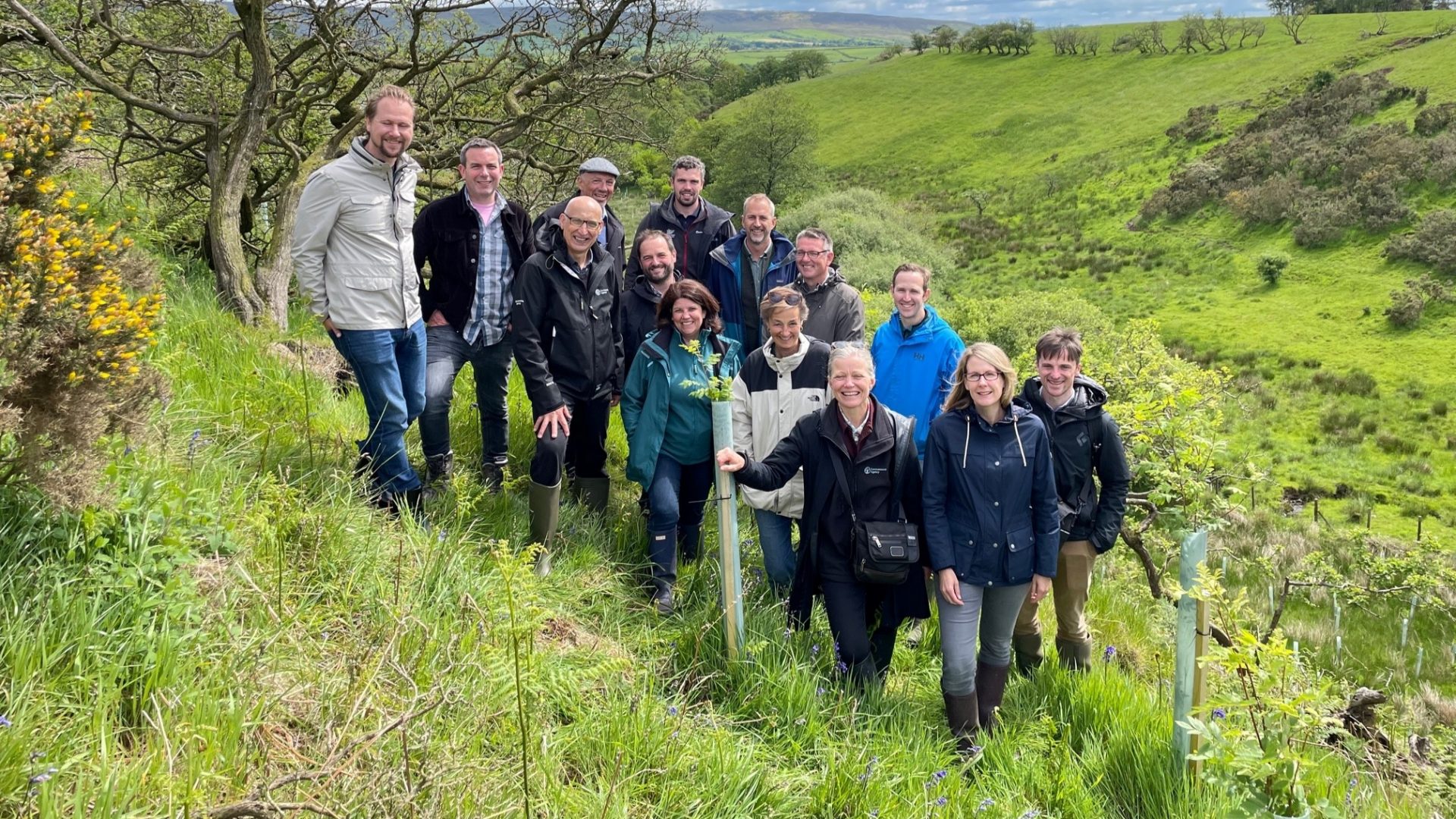The Wyre Natural Flood Management project (Wyre NFM) will invest £1.5m to reduce flood risk to communities in Lancashire. The launch of the project last month was attended by Emma Howard Boyd, Chair of the Environment Agency and included a visit to the Upper Wyre Catchment, adjacent to one of the sites set to receive funding to deliver nature improvements. The visit was timed to mark the announcement of the second round of projects to benefit from the pioneering Natural Environment Investment Readiness Fund, for which the Wyre NFM project has acted as a successful pilot.
This project is the first to use a new green investment financial model, which will see multiple beneficiary organisations repay the upfront investment through the sale of ecosystem services. It is also the first environmental project eligible for Social Investment Tax Relief (SITR).
Emma Howard Boyd, Chair of the Environment Agency and interim Chair of the Green Finance Institute, said: “The Wyre Rivers Trust and this project, with support from Triodos Bank UK and the Esme Fairbairn Foundation, has been a trailblazer in securing private investment for nature-based solutions to tackle the impacts of climate change. The landowners should also be recognised for their pioneering approach in embracing a new way of working and using nature capital.
“This project and the Natural Environment Investment Readiness Fund is leading the way in showing how private investment in nature can be achieved, including by providing long-term returns through costs avoided from a reduction in flood risk, such as here where communities will benefit downstream in Churchtown, which were impacted during Storm Desmond.”
The money raised in the project will be used to deliver over 1,000 highly targeted NFM measures over nine years:
- Wetland creation – temporarily storing water: this could include leaky dams, earth bunds, bunded hedgerows, peatland restoration, floodplain reconnection etc.
- Grassland creation i.e. increasing catchment roughness to help slow overland flow. This could include land use change (intensive grassland to rough pasture), riparian buffer strips etc.
- Woodland Creation – to intercept and transpire water. This could include large native woodland blocks or riparian tree planting.
Farmers and landowners in the local area will receive grants to host and maintain these nature interventions. The measures are designed to reduce the maximum water volume of a flood (peak flood level) and/or delay the arrival of the flood peak downstream by emulating or restoring the natural functions of a river catchment. As well as protecting homes and businesses downstream, such NFM interventions can boost biodiversity, increase resilience to climate change and improve water quality..
Mark Lloyd, CEO of The Rivers Trust, said: “I’m extremely proud to see this innovative project come to fruition. Nature-based solutions are a vital part of our collective arsenal to restore our natural environment and increase climate resilience, and I’m delighted that The Rivers Trust is leading the way, working in cross-sector partnerships to find sustainable funding models to implement them at scale.”
Bevis Watts, CEO of Triodos Bank UK, added: “We have been delighted by investor interest and support during the capital raising process. Close partnerships with all involved has been key and an aligned vision has shown that success is possible in an initiative of this kind. We hope this work will inspire others in the finance sector to play a role in connecting economic outcomes to investment in environmental restoration. It has taken approximately two years to bring this investment to fruition and more support is needed to develop similar projects nationwide to address climate change, adapt to its effects and restore biodiversity. This is going to be critical to meeting net zero goals and reversing nature’s decline.”
Thomas Myerscough, General Manager of the Wyre Rivers Trust, said: “We are thrilled to be at the forefront of the delivery of nature-based solutions using private investment. The mobilisation of funding for the delivery of natural flood management measures as part of this project will confer a wide variety of benefits to the communities and habitats of the Wyre Catchment. The engagement of local farming communities has been critical to the success of this project and we are delighted to be working in partnership with them.”
Jo Harrison, Environment, Planning and Innovation Director at United Utilities, said: “We’re very proud to support the Wyre Natural Flood Management project. This project provides a unique mechanism to secure funding on a scale that wouldn’t be possible for individual organisations on their own. United Utilities has been involved in this project since its inception and we hope that it becomes a blueprint for many others in the region and nationally.
“By working in partnership in this way, we can deliver real tangible results that will bring benefits to communities and the environment.”



